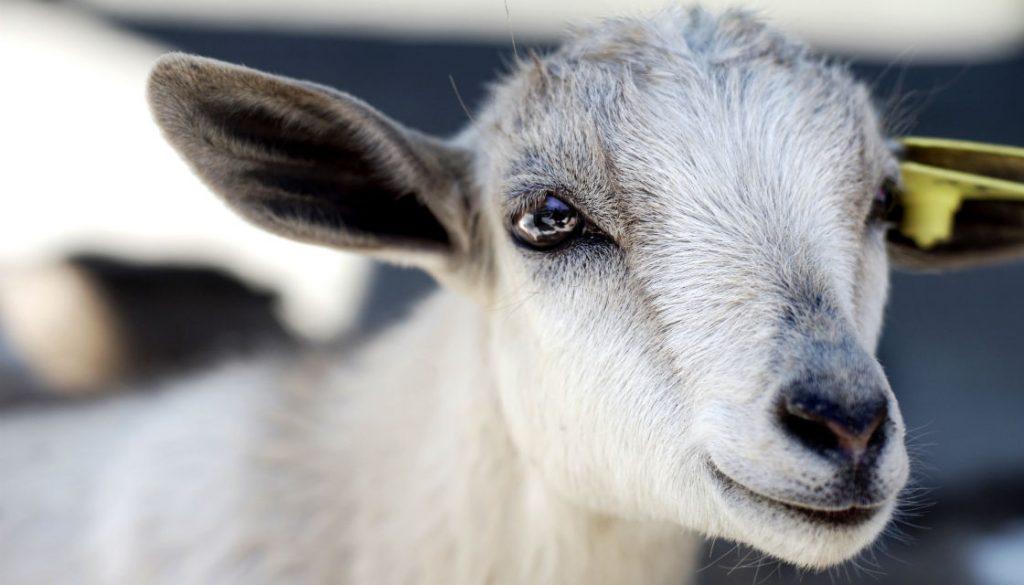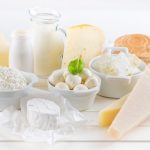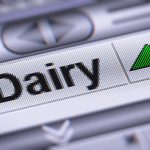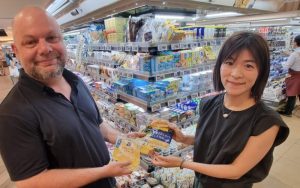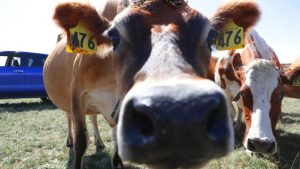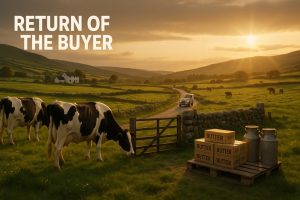
They are seeking investments of $5 million or more from high-net-worth and experienced investors for one of New Zealand’s largest dairy goat enterprises based out of Whangarei, Northland.
The Adairs were announced 2020 Northland Share Farmers of the Year in the New Zealand Dairy Industry Awards, only four years after emigrating from Britain and beginning at the bottom of the NZ dairy industry.
They have a conditional agreement to buy the dairy goat farm of Allan and Lynne Karels, milking and housing 1450 does, which are fed on cut and carry pasture.
The business has 151,699 shares in the Dairy Goat Co-operative at the nominal value of $35/share, worth at least $5.3m.
However, because the co-operative keeps a lid on equity supply, shares are selling well in excess of their nominal value.
The goat farm is on 150ha in four titles, with five dwellings and numerous farm buildings.
These include two large drive-through loafing barns for housing the milking goats, conveyor belts for feeding, shelters over the machinery and accessways, and an 80-bail internal rotary milking shed installed seven years ago.
Complementary buildings include rearing sheds for kids, feed storage sheds, an implement shed and workshop, and concrete silage pads.
All goats are fed fresh-cut silage mixed with kibbled grain meal, wheat straw and molasses, and all green feed is grown on 80ha of flat and easy contour, with ryegrass and clover pasture.
Ray White Whangarei agent Pete Ogle says the Dairy Goat Co-op has an enviable record of looking after its shareholders extremely well.
“It is one of those rare primary co-operatives that has managed to get the recipe right with the tension between the producer and the market being skilfully managed to secure some of the highest prices paid for milksolids,” Ogle said.
Shareholders have received between $19 to $21/kg in recent years.
Production for the Karels has averaged 160,216kg MS over the past three years, but the co-op asked all suppliers to stick to their share entitlement last season because of market uncertainties caused by covid-19.
That meant a small downsizing and milking during the winter months.
Lynne says the shareholding was built up over the past decade, through purchasing from other dairy goat farmers and by applications for more shares when the co-op opened up the opportunities.
The current operation has 12 full-time equivalents in the workforce, including Allan and Lynne’s two daughters.
She and Allan will retire and the other family members will move to other work activities.
Milking times are 3.5-4 hours twice daily through the rotary and the average production per goat is 3.5-4 litres a day.
Farm working costs of production fall between $9-$14/kg, according to industry figures from BNZ Agri, and the co-op says average annual production of supply farms is 120kg/doe over a 300-day season.
The co-op has 5.725m shares owned by 72 supplying farms and its revenue last season was $245m.
The Adairs have wasted no time in building their dairying business since first arriving in this country in 2015.
After a succession of farm management roles, they currently own 1000 milkers, 450 replacements and 1000 dairy-beef cattle.
Their business consists of 900 cows being contract milked for the fourth season, with a nearby leased farm carrying 500 cows and a lease-to-buy on another 500-cow farm about 10km away, where they live.
Ownership of that farm is scheduled for the middle of this year; this is the main target of their relocation across the world.
Each year they rear 2500 calves as replacements or to either 100 or 200kg liveweights before sale and they currently employ nine full-time equivalents.
Charlie, aged 26, was from a 300-cow family dairy farm in the UK and has a Diploma in Agriculture.
Emma built a career in law prior to working with Charlie in a very equal farming partnership, having arrived in NZ with little more than their clothes.
“We have taken full advantage of the extraordinary opportunities available in the dairy industry in New Zealand,” Charlie said.
“We have been able to trade forward and build our livestock numbers while breeding Friesian heifers for export, for example.
“What we have achieved here in five years would have taken a lifetime in England.”
In their fourth season as contract milkers for the same farm owners, they told the award judges that size and scale led to even more opportunities opening up.
Animal breeding and pasture management are Charlie’s strengths, while Emma has a gift for calf rearing and managing the couple’s accounts and finances.
Their progress has had some setbacks, including two Notices of Direction for Mycoplasma bovis, 137 cattle killed that did not have the disease, waiting for compensation and prolonged drought last summer, which necessitated much higher expenditure on supplementary feeding.
Their achievements so far pale in comparison with what they propose in buying and running the Karels dairy goat farm.
“It’s all go at the moment, meeting potential investors and explaining who we are and what we propose,” he said.
“Before the end of March, we expect to put this together and be able to go ahead.”
Ogle says their energy, enthusiasm and intelligence will ensure success and that this is an attractive opportunity to investors wanting a reasonable return out of the rural economy.
